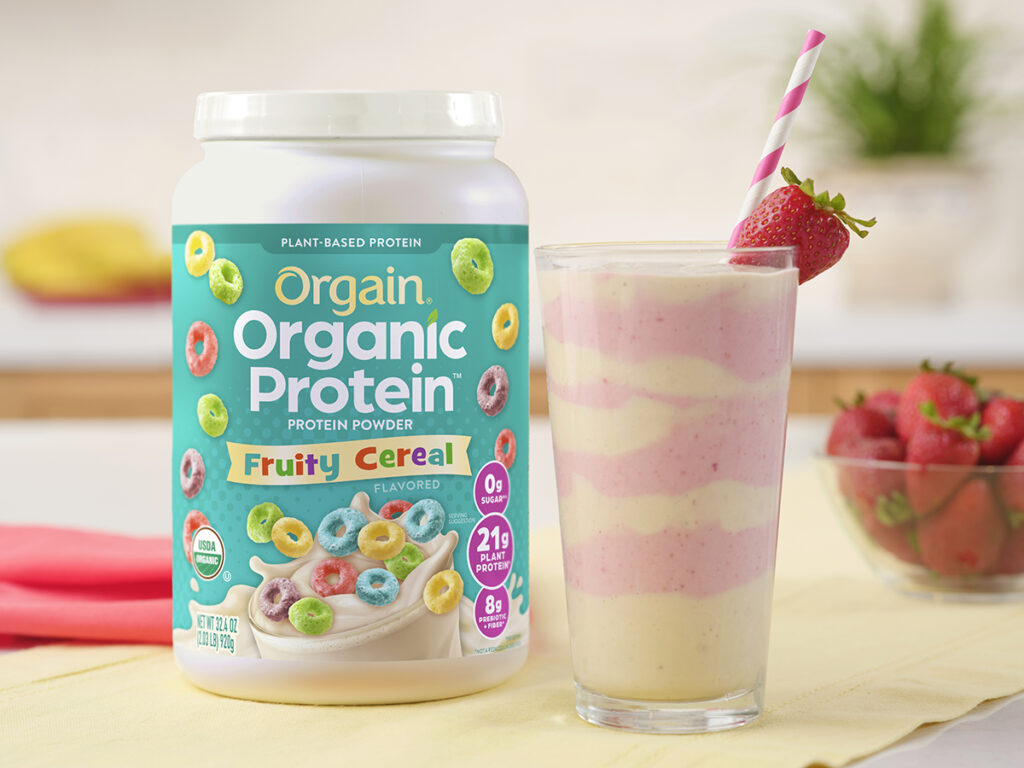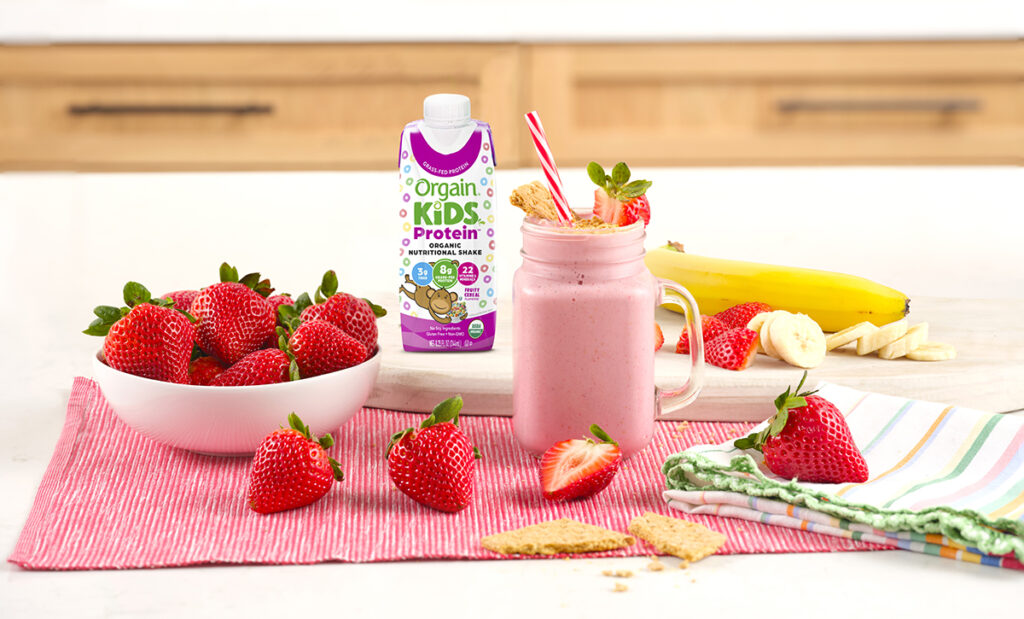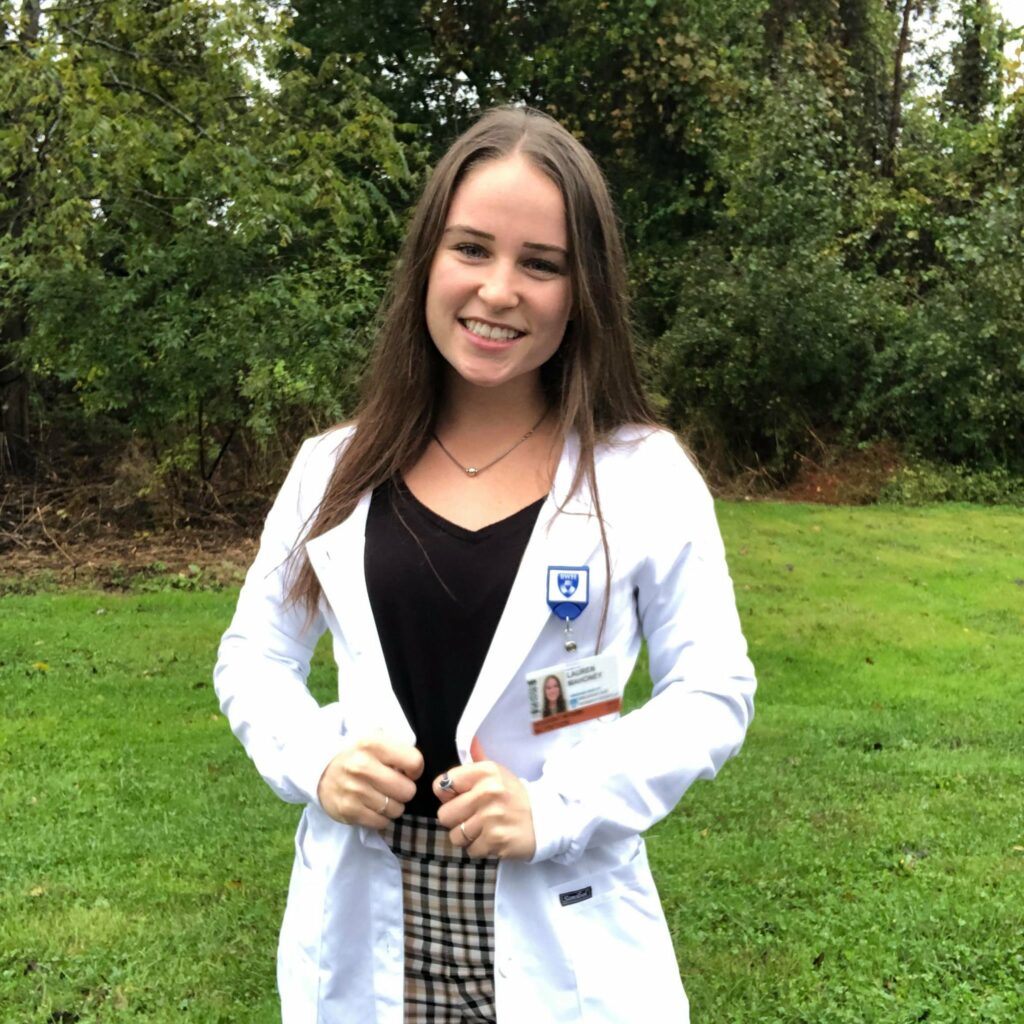Nutrition Strategies for Breast Cancer Treatment & Survivorship
Breast cancer accounts for 25% of all female cancers and is the most frequently diagnosed cancer among women.1 According to the American Institute for Cancer Research, certain habits are shown to improve survival rates after a breast cancer diagnosis.
More than half of the women who developed breast cancer are 62 years of age or younger. Overall, death rates from breast cancer are highest among Black women, who also have higher rates of triple-negative breast cancer, a more aggressive type of tumor that is difficult to treat.2
In 2022, the American Cancer Society reported estimated new cases by age and cancer type:
| Ductal carcinoma in situ (DCIS) cases | Invasive cases | Deaths | ||||
|---|---|---|---|---|---|---|
| Age | Number | % | Number | % | Number | % |
| <40 | 1,230 | 2% | 10,850 | 4% | 1,090 | 3% |
| 40-49 | 8,050 | 16% | 36,710 | 13% | 2,950 | 7% |
| 50-59 | 12,830 | 26% | 65,980 | 23% | 7,150 | 17% |
| 60-69 | 16,030 | 31% | 84,200 | 29% | 10,270 | 24% |
| 70-79 | 10,450 | 20% | 61,470 | 21% | 10,010 | 23% |
| 80+ | 2,810 | 5% | 28,640 | 10% | 11,780 | 27% |
| All ages | 51,400 | 287,850 | 43,250 | |||
Estimates are rounded to the nearest 10. Percentages may not sum to 100 due to rounding.
American Cancer Society. Breast Cancer Facts and Figures 2022-2024. Atlanta: American Cancer Society, Inc.
Nutrition Support During Cancer Treatment
During treatment, loss of appetite can lead to weight loss and poor intake of nutrients.3 Evidence shows that these strategies can help increase nutrient intake to support quality of life and whole-body healing:
- Eat the largest meal of the day when hungriest. No matter when hunger strikes, capitalize on the opportunity to eat.
- During the largest meal, be sure to eat protein-rich foods first. These include pulses, eggs, tofu, chicken, fish, meat, or yogurt.
- Try a variety of flavors and seasonings to entice your appetite.
- With loss of appetite, try to have nutrient-rich snacks and small meals throughout the day.
- If it’s difficult to have food, try smoothies and liquid or powdered nutrition supplements.4
Since fatigue is the most common side effect of all cancer treatments, Tierney shares how to help combat that with food. “Fatigue can make it incredibly difficult to make nutritious choices that best fuel your body during cancer treatment. Keeping on hand ready-to-drink drinks, such as the Vegan Organic Nutrition Shake, can make it easier to get some much-needed nutrition when it may be difficult to prepare a meal.”
She also says, “Commonly during treatment, patients experience days or even times of day when they have the most energy. I used these higher energy times for meal prepping some meals that were easy to freeze or to have essentials ready for the days following treatment – such as a large batch of grains & beans. That way, when I didn’t feel like cooking, I could simply reheat or quickly throw together a nutritious meal.”
Lifestyle Strategies for Breast Cancer Survivors
Being a healthy weight and physically active are firmly linked to survival, while some evidence shows that following a diet that is low in saturated fat and rich in dietary fiber and soy-based foods can be helpful for breast cancer survivors.5 Getting adequate protein can help battle fatigue during treatment.5
Although receiving a breast cancer diagnosis can be challenging, many women are motivated to undertake lifestyle improvements to help manage side effects and improve overall quality of life.3
Healthy Body Weight
Research shows a link between having a healthy body mass index and surviving breast cancer. Although more research is needed, a 5-10% weight loss for overweight or obese women can significantly improve outcomes.
Group and individual support for lifestyle changes including a calorie deficit and increased physical activity are shown to be effective in helping to achieve this goal.1
Physical Activity
Decades of research have shown that physical activity offers protection against the incidence of certain types of cancer. Physical activity before and after a breast cancer diagnosis was found to improve survival.6 Moderate-intensity activity including aerobic activity or a combination of aerobic and strength training for about 150 minutes per week is shown to be effective.1
For women being treated with chemotherapy, weight gain, a loss of muscle mass, and an increase in fat mass can occur during treatment.2 Physical activity can help manage these unwanted side effects.3
What to Eat After a Diagnosis
Despite the wealth of evidence on diet and breast cancer, it is difficult to draw firm conclusions on diet habits that improve survival.5 As with any scientific study of diet, it can be hard for researchers to make conclusions based on self-reported food intake.2 However, there is some evidence supporting a focus on these dietary habits.
Tierney says: “A simple focus of adding (rather than restricting) can be an incredibly powerful approach to reduce cancer risk – and not to mention a whole host of other chronic diseases!”
Fiber
Eating more fiber-rich foods after a breast cancer diagnosis is linked to better survival rates.2 The fiber found in vegetables is linked to improved survival, as well as soluble fiber found in foods such as pulses, fruit, and oatmeal, which supports the gut microbiome.7
Protein
Some research supports that getting less than 1 gram of protein per kilogram of body weight has been linked to fatigue and mortality.3 More research is needed to determine the type of protein (plant-based versus animal-based) and how much is needed to support recovery and survival.8
Soy
Research shows that consuming foods containing soy 12 months or more after a diagnosis is linked to improved survival rates.2 Since soy foods often contain fiber, this is a bonus benefit for boosting fiber intake.
Low Saturated Fat and Total Fat
When compared to a diet with >30% of calories from fat, a diet with 20% of calories from fat led to a lower incidence of deaths after breast cancer. At follow-up, the women who were part of the low-fat diet group self-reported continued adherence to a low-fat diet, showing promise for long-term benefits.9,10
Saturated fat, found in foods such as dairy products, fatty meats, and baked goods, is linked to mortality from breast cancer.7
Plant-Based Diets
Although more research is needed, plant-based diets are shown to be beneficial for cancer survivors.8
A higher intake of fruits and vegetables is associated with lower all-cause mortality.8 It makes sense to eat more fruits and vegetables to help the body heal after a diagnosis.3 Doing so is linked to lower body weight, which can help improve survival after breast cancer.5
Navigating the New Normal
Board-certified oncology dietitian, Orgain Nutrition Advisory Board member, and a breast cancer thriver, Alison Tierney, MS, RD, CSO recommends health goals be set post-treatment to promote overall health and recovery. “Cancer survivorship can be a very tricky time with patients experiencing a mix of emotions – happy that treatment has ended but also the wonder of ‘what now?’. Helping patients work toward achieving nutrition and wellness goals post-treatment can be empowering for a patient – while also helping to reduce the risk of recurrence,” says Tierney.
Learn more with Orgain
For more education on cancer and nutrition, check out the following educational resources from Orgain Healthcare:
Professional Education Webinar
Reducing Cancer Recurrence with Plant-Based Nutrition, presented by Alison Tierney, MS, RD, CD, CSO
The Good Clean Nutrition Podcast
Episode 22: Eating Well: Nutrition During Cancer Treatment with Cara Anselmo, MS, RDN, CDN
Science-Based Brief
Nutrition Care in Cancer Treatment
References:
- Lake B, Damery S, Jolly K. Effectiveness of weight loss interventions in breast cancer survivors: a systematic review of reviews. BMJ Open. 2022 Oct 7;12(10): e062288. doi: 10.1136/bmjopen-2022-062288. PMID: 36207046; PMCID: PMC9557263.
- American Cancer Society. Breast Cancer Facts & Figures 2022-2024. Atlanta: American Cancer Society, Inc. 2022.
- Conigliaro T, Boyce LM, Lopez CA, Tonorezos ES. Food Intake During Cancer Therapy: A Systematic Review. Am J Clin Oncol. 2020 Nov;43(11):813-819. doi: 10.1097/COC.0000000000000749. PMID: 32889891; PMCID: PMC7584741.
- American Institute for Cancer Research. Loss of appetite, weight loss, and undernutrition. Available at: https://www.aicr.org/cancer-survival/treatment-tips/during-treatment/
- World Cancer Research Fund/American Institute for Cancer Research. Diet, Nutrition, Physical Activity, and Cancer: A Global Perspective. Continuous Update Project Expert Report 2018. Available at dietandcancerreport.org
- Department of Health and Human Services. 2018 Physical Activity Guidelines Advisory Committee Scientific Report. Available at: https://health.gov/our-work/nutrition-physical-activity/physical-activity-guidelines/current-guidelines/scientific-report
- Park SH, Hoang T, Kim J. Dietary Factors and Breast Cancer Prognosis among Breast Cancer Survivors: A Systematic Review and Meta-Analysis of Cohort Studies. Cancers (Basel). 2021 Oct 23;13(21):5329. doi: 10.3390/cancers13215329. PMID: 34771493; PMCID: PMC8582373.
- Hardt L, Mahamat-Saleh Y, Aune D, Schlesinger S. Plant-Based Diets and Cancer Prognosis: A Review of Recent Research. Curr Nutr Rep. 2022 Dec;11(4):695-716. doi: 10.1007/s13668-022-00440-1. Epub 2022 Sep 23. PMID: 36138327; PMCID: PMC9750928.
- Chlebowski RT, Aragaki AK, Anderson GL, Thomson CA, Manson JE, Simon MS, Howard BV, Rohan TE, Snetselar L, Lane D, Barrington W, Vitolins MZ, Womack C, Qi L, Hou L, Thomas F, Prentice RL. Low-Fat Dietary Pattern and Breast Cancer Mortality in the Women’s Health Initiative Randomized Controlled Trial. J Clin Oncol. 2017 Sep 1;35(25):2919-2926. doi: 10.1200/JCO.2016.72.0326. Epub 2017 Jun 27. PMID: 28654363; PMCID: PMC5578391.
- American Institute for Cancer Research. A low-fat diet may lengthen survival for breast cancer survivors. Available at: https://www.aicr.org/news/low-fat-diet-may-lengthen-survival-for-breast-cancer-survivors/
At Orgain, we pride ourselves in crafting the highest quality protein powders and nutrition shakes, and also enjoy coming up with fun flavors that appeal to both kids and adults. Fruity cereal, a delicious twist on a nostalgic kid’s breakfast cereal, is the newest flavor added to our portfolio of plant-based protein powders for adults and nutrition shakes for kids. Packed with protein and nutrients, we’ve outlined some of the many nutritional highlights for each product below.

Orgain Organic Plant-Based Protein Powder – Fruity Cereal
Nutritional highlights per 2-scoop serving
- 150 calories
- 21g organic, plant-based protein
- 8g prebiotic fiber
- Non-GMO
- Gluten-free
- No sugar added
- Vegan
- Made without dairy, soy, or lactose

Orgain Organic Grass-Fed Kids Nutrition Shake – Fruity Cereal
- 180 calories
- 3g dietary fiber
- 8g organic, grass-fed protein
- 22 key vitamins and minerals
- Organic fruit & vegetable powder blend
- Gluten-free
- 9g added sugar
- Made without soy

Episode 30: Beyond Mac & Cheese: Plant-Based Eating for Kids with Dr. Yami Cazorla Lancaster DO, MPH, MA, FAAP
[Description to be shared separately for review]
Be sure to subscribe to The Good Clean Nutrition Podcast on your favorite podcast platform and listen to more episodes at https://healthcare.orgain.com/podcast.

Orgain Team Spotlight: Healthcare Ambassador Support & Education Manager, Lauren Bissonnette (Mahoney), MS, RD, LDN
We sat down with our newest dietitian, Lauren Bissonnette, to learn more about her background. She started at Orgain this past February as the Ambassador Support & Education Manager. In this role she is responsible for ensuring Orgain’s healthcare ambassadors receive the right product samples and educational materials to support their efforts when counseling patients or clients. In addition, she also supports Orgain’s professional education webinar series, The Good Clean Nutrition Podcast, wholesale healthcare pricing program, Orgain Healthcare app, monthly newsletters, and other resources.
Q: Tell us a bit about your career path toward becoming a registered dietitian (RD), including any additional certifications or credentials that you’ve earned.
I started my professional career in the culinary industry. I had achieved a national silver medal competing in culinary arts and was a head chef in a restaurant by the age of 18. However, while honing my culinary skills I started to realize that something was missing; I wanted to learn more about the science behind the food I was cooking and use it to help others. This led me to pursue my Bachelor of Science in Nutrition.
As I was gaining experience in nutrition it became evident that to make a large-scale difference in the world’s health, I would want to eventually work in a business setting where I could help distribute health knowledge, high-quality nutrition products, and other services to better community wellness. I decided to lean into my passion for learning by continuing my education with a Master of Science in Business & Analytics to learn how to evaluate food manufacturers, analyze consumer data, market nutrition effectively, etc. I followed this by completing my clinical-focused Dietetic Internship at Brigham & Women’s Hospital (BWH) to become a Registered Dietitian (RD). This path toward becoming an RD gave me a diverse background that allows me to use my passion for nutrition, cooking talents, and data skills to help improve the health of others.
Q: How did you first learn about Orgain and what sparked your interest in applying for a role with them?
I first learned about Orgain in college after applying for the student ambassador program. After receiving my welcome kit, I was hooked on the ready-to-drink shakes. I found them very convenient as a full-time student synchronously working full-time. Plus, they checked all the nutritional boxes I looked for as a data-focused nutrition student. After further diving into Orgain as a company, I realized how dedicated they are to not only providing great nutrition products, but also health education, and became an even bigger fan.
As a dietetic intern at BWH, we had the opportunity to choose a specialized rotation wherever we would like, and I chose to reach out to Orgain and learn from their dietitians. After learning about the company from the inside, I knew it was a goal of mine to work here. While working as a pediatric clinical dietitian, I heard about the opportunity of a new registered dietitian position at Orgain. I applied, interviewed with the healthcare team, and am so grateful they found me to be a good fit for the role!
Q: What is your favorite part about your job?
My favorite part about my role as the Orgain Healthcare Ambassador Support & Education Manager is being a part of a team that is constantly creating new resources, products, opportunities, etc. to help healthcare providers and their patients. Every day includes a new project that I look forward to.
Q: What is your favorite Orgain product and flavor and why? Feel free to share any ways you enjoy using it, too!
While I have many favorite products, I have to say the top product for me is the French Vanilla Collagen Creamer with Oat milk. I use it daily by frothing the powder with a little extra oat milk and pouring it as a cold foam over my iced coffee. I appreciate this product for its flavor as well as hair and nail support.
Q: How can our readers get in touch with you?
You can reach out to me directly via email at [email protected] or connect with me on LinkedIn!

Register now for next month’s webinar on October 26, 2023, 2-3pm EST: How to Cultivate a Family Culture of Health and Wellbeing presented by Jill Castle, MS, RDN. Join to learn about the power of a supportive family foundation, how cultural norms and parental pasts may create obstacles to the family ethos, and how to help families create a strong family culture.
Did you know that the Orgain Healthcare Professional Education Webinar Series can be easily accessed on the Orgain Healthcare App? Whether on-demand or live, all the webinars in this series are available for 1.0 CPEU for RDNs and NDTRs. Learn More



